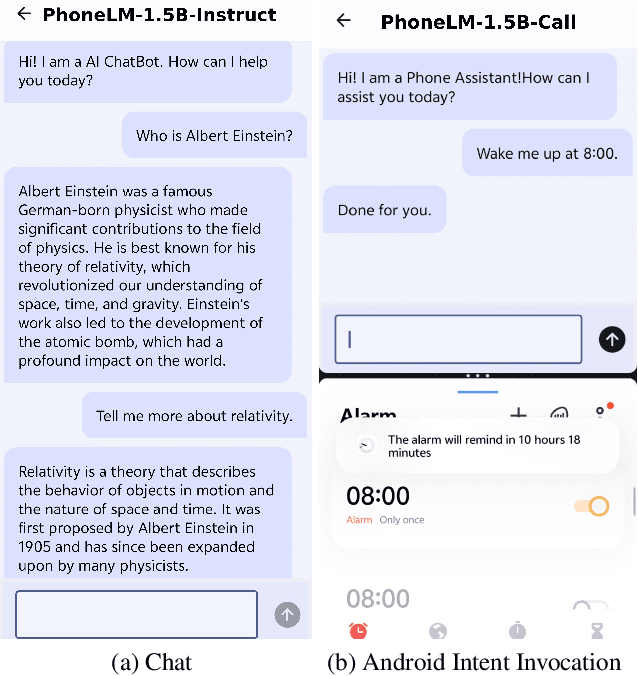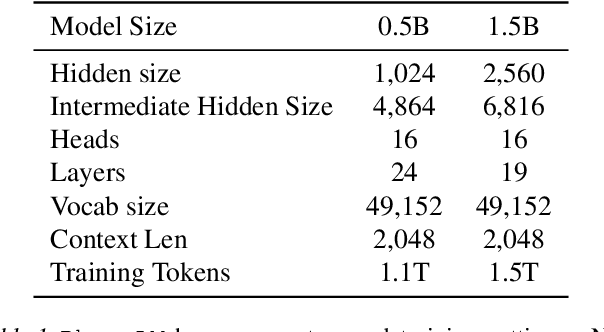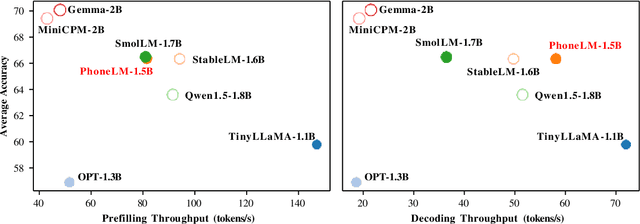Weikai Xie
DroidCall: A Dataset for LLM-powered Android Intent Invocation
Nov 30, 2024



Abstract:The growing capabilities of large language models in natural language understanding significantly strengthen existing agentic systems. To power performant on-device mobile agents for better data privacy, we introduce DroidCall, the first training and testing dataset for accurate Android intent invocation. With a highly flexible and reusable data generation pipeline, we constructed 10k samples in DroidCall. Given a task instruction in natural language, small language models such as Qwen2.5-3B and Gemma2-2B fine-tuned with DroidCall can approach or even surpass the capabilities of GPT-4o for accurate Android intent invocation. We also provide an end-to-end Android app equipped with these fine-tuned models to demonstrate the Android intent invocation process. The code and dataset are available at https://github.com/UbiquitousLearning/DroidCall.
PhoneLM:an Efficient and Capable Small Language Model Family through Principled Pre-training
Nov 07, 2024



Abstract:The interest in developing small language models (SLM) for on-device deployment is fast growing. However, the existing SLM design hardly considers the device hardware characteristics. Instead, this work presents a simple yet effective principle for SLM design: architecture searching for (near-)optimal runtime efficiency before pre-training. Guided by this principle, we develop PhoneLM SLM family (currently with 0.5B and 1.5B versions), that acheive the state-of-the-art capability-efficiency tradeoff among those with similar parameter size. We fully open-source the code, weights, and training datasets of PhoneLM for reproducibility and transparency, including both base and instructed versions. We also release a finetuned version of PhoneLM capable of accurate Android Intent invocation, and an end-to-end Android demo. All materials are available at https://github.com/UbiquitousLearning/PhoneLM.
 Add to Chrome
Add to Chrome Add to Firefox
Add to Firefox Add to Edge
Add to Edge